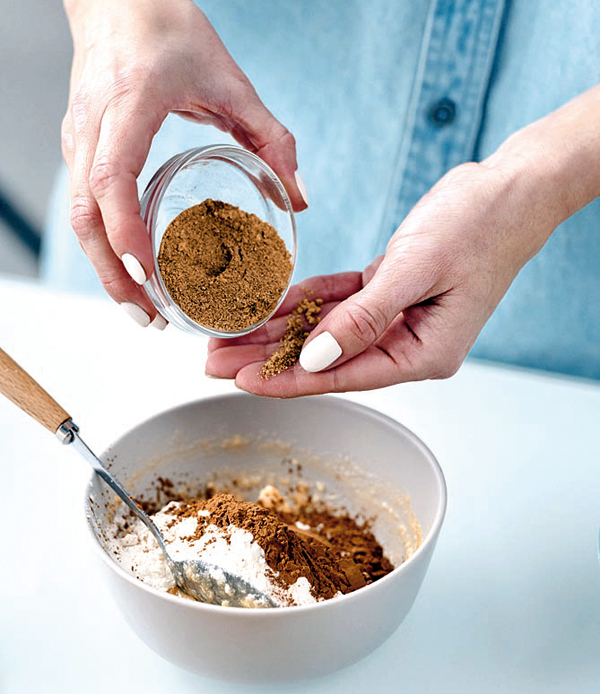
Many of us know cinnamon as a spice that is used all over the world. For some, it is that brown dust on top of their morning cappuccino from a favorite coffee shop chain, while for others it is a kitchen staple. Once considered as the “gold dust of Europe” during the 1500s, cinnamon may have been as valuable in Europe at that time, as oil is valuable globally today.
If it was not known then as a superfood, now there is another reason for it to be such an important ingredient or staple at home.
Studies have shown that cinnamon can help control blood sugar by making insulin work efficiently. It also contains powerful antioxidants as well as anti-inflammatory and anti-microbial properties. It can protect against heart disease and has beneficial effects on neurodegenerative diseases such as Alzheimer’s and Parkinson’s diseases. Cinnamon has also been widely studied for its potential use in cancer prevention and treatment. Although further research in humans is still needed, cinnamaldehyde, one of the main active components of cinnamon, has been found to be beneficial against various kinds of infection.

“I chanced upon this superfood and discovered that the Philippines has 16 native species, and they are in the International Union of Conservation of Nature’s (IUCN) list of threatened species,” shares November Canieso-Yeo, founder of Plantsville Health, a social enterprise that aims to save the Philippine cinnamon and other aromatic indigenous species in partnership with a number of farmers by buying their produce, and developing them into healthful products.
“Currently, our country imports more than 95 percent of cinnamon consumption. It would be wonderful if we could help grow the Philippine cinnamon, while also helping our farmers earn and grow more cinnamon,” she adds.
Plantsville aims to partner with more groups or businesses that can further help farmers as they continue to plant and protect Philippine cinnamon.
For her enterprising vision, Canieso-Yeo qualified for the Department of Science and Technology’s (DOST) Women Helping Women: Innovating Social Enterprises (WHWise), a program that brings together government agencies and private organizations to seek out and prepare women-led social enterprises for growth, scalability, and subsequent venture capitalist funding. The program provides early-stage funding, training, skills development, mentorship, and business incubation as well as access to technology to enable even women from rural communities to be part of the global economy.

This DOST grant for Canieso-Yeo recently caught the eye of RiteMed Philippines, Inc. (RiteMed), the country’s leading unibranded line of pharmaceutical and healthcare products in the country. The two companies recently signed a Memorandum of Understanding for the collaboration in converting Plantsville’s research studies about herbs and plants with scientific and clinical evidence to products that can be commercially made available.
“RiteMed has always been open to partnerships especially if it benefits the Filipino patients as well as emerging Filipino entrepreneurs whose business model is based on supporting local resources that are proven to have health benefits. This effort is also aligned with the government’s thrust,” says Jose Maria A. Ochave, president of RiteMed. “With Plantsville’s commitment and with the full support of DOST, we may be able to optimize our country’s natural resources not just for local but even for the global market.”
We may not be aware of it, but we probably consume cinnamon in our everyday food. It might be in one of your favorite bread, go-to comfort soup, or all-time favorite tea, among many others. Cinnamon is a versatile spice that is associated with a long list of health benefits. However, it is said that not all cinnamon is created equal. The Cassia variety contains significant amounts of a compound called coumarin, which is believed to be harmful in large doses.

All cinnamon should have health benefits, but Cassia may cause problems in large doses due to the coumarin content. Ceylon (“true” cinnamon) is much better in this regard, and studies show that it’s much lower in coumarin than the Cassia variety. Compared to Ceylon cinnamon, Cassia cinnamon is generally more affordable and more widely available. Best to stick to small doses and always consult your doctor first before trying out a new health product.
Plantsville Health’s products are available at their website (www.plantsville-health.com), Shopee store (Plantsville), Facebook page (https://www.facebook.com/PlantsvilleHealth), Amazon and Emphori Showroom in the United States (US). Physical stores in the country that carry the products are Roots Collective (Uptown Mall, BGC – near the cinemas), Sinag Store (Glorietta 3, Ayala Trinoma), OTOP Store (Ayala Mall – Bacolod), Association of Negros Producers (ANP) Showroom – Bacolod.
To reach me, I’m at joba.botana@gmail.com.

